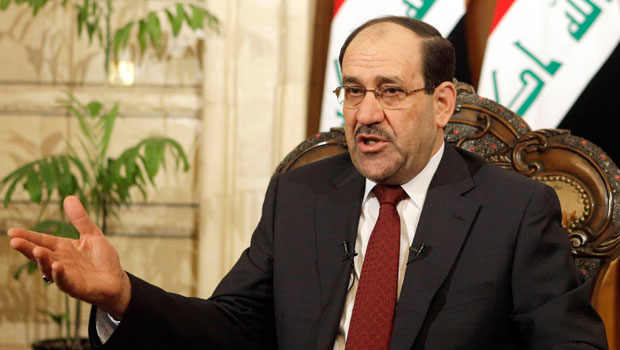But Premier Nuri Al-Maliki opened several escape clauses for his ministers should they fail to meet the June 7 deadline, which he set in an effort to appease protests by crowds demanding better public services and an end to corruption.
He also dodged questions in an interview with The Associated Press about whether he would also step down if his government is deemed to have fallen short of demands for change that have resonated throughout Iraq over the last six weeks.
The issue is being watched as a sign of whether Iraq’s government will hold together in the face of the nationwide protests, some of which have turned deadly. So far, the demonstrations have not reached the threat level of the uprisings in other Arab nations.
But eight years after the US-led invasion, Iraqis are fed up with limited electricity, streets in some areas that run with sewage and the dishonesty and greed of government officials standing in the way of addressing such woes. At the same time, insurgent attacks, crime and other violence continues to plague Iraq’s cities.
“If it is proved during the 100 days that a minister is not capable to do these duties, then he definitely will be replaced,” Al-Maliki said. “So far, there are some good efforts by some ministers, but we can’t judge (final results) now.” Pressed on whether he, too, might leave, Al-Maliki would only say that his government would cease to exist if it failed.
“If all the ministers fail, then the government would end because there is no need for the continuation of a failed government,” he said.
He quickly added: “But this is not likely, as some ministers have started to show some signs of success.” Al-Maliki issued his 100-day warning to his Cabinet on Feb. 27, saying it must deliver better services or be replaced.
The beleaguered prime minister, who barely held onto his own job after his party narrowly failed to win the most seats in last year’s national elections, has also taken pains to show he is listening to his critics. He promised not to run for re-election in 2014 and to cut his salary by half after protesters in Tunisia and Egypt forced out longtime, autocratic leaders.
But it’s unlikely that many, if any, if Al-Maliki’s Cabinet ultimately will be forced out. He said he would push back the June 7 deadline by another 100 days for some officials who are moving to enact reforms but haven’t yet gotten them done.
Additionally, the minister’s performances will be judged by a committee that Al-Maliki has appointed.










